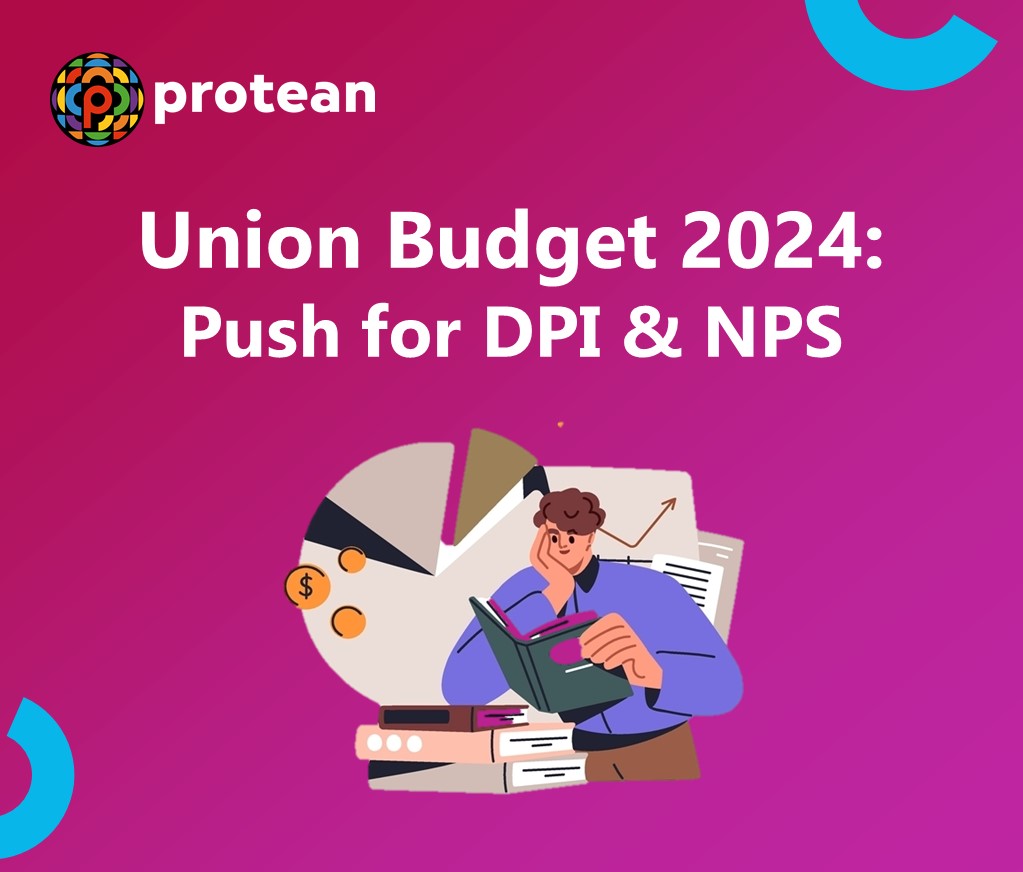On July 23, 2024, Finance Minister Nirmala Sitharaman presented the Union Budget for the fiscal year 2024-25. In a series of financial reforms, the government has unveiled significant changes aimed at revitalizing key sectors including agriculture, pension systems, and individual tax structures. Here, we will explore the budget's significant highlights and impact on taxpayers.
Embracing Digital Transformation in Agriculture: The Advent of DPI
The introduction of the Digital Public Infrastructure (DPI) for agriculture heralds a major step forward in digitizing and streamlining agricultural practices, promising a brighter future for millions of farmers.
This initiative is set to revolutionize farming practices by ensuring comprehensive coverage of farmers and their lands over the next three years. Starting this year, a digital crop survey for the Kharif season will be launched in 400 districts as part of the Digital Public Infrastructure (DPI) initiative, with the goal of integrating six crore farmers and their lands into farmer and land registries over the next three years.
Furthermore, the initiative will facilitate the issuance of Jan Samarth based Kisan Credit Cards in five states, offering a beacon of hope for more streamlined financial support to the agrarian community. With over ₹1.52 lakh crore allocated in the sector, the government will provide funding for agriculture research and development of large-scale vegetable production.
National Pension System Gets a Makeover: Boosting Social Security and Expanding Coverage
The National Pension System (NPS) is undergoing transformative changes to enhance social security benefits across various sectors. A notable introduction is the NPS-Vatsalya plan, catering specifically to minors through contributions made by parents and guardians. Upon reaching the age of majority, these accounts can seamlessly transition into regular NPS accounts, ensuring a continuum of benefits.
To improve social security benefits, deduction of expenditure by employers towards NPS is proposed to be increased from 10 to 14 per cent of the employee’s salary. Similarly, deduction of this expenditure up to 14 per cent of salary from the income of employees in private sector, public sector banks and undertakings, opting for the new tax regime, is proposed to be provided.
Prime Minister's Vision
Prime Minister Narendra Modi has stated that this budget aims to lay the foundation for a "Viksit Bharat" (Developed India) and is crucial for "Amrit Kaal" (a period of significant progress). The government hopes that the budget will propel India forward on various fronts despite global challenges.
Prime Minister Narendra Modi has stated that this budget is meant for the empowerment of the new middle class. The youth would also get unlimited opportunities through employment and upskilling according to his statement. Moreover, this budget would help women, small businessmen, and MSMEs.
Major Announcements
One of the notable changes in the budget is the withdrawal of the 2% equalisation levy. This is expected to ease the tax burden on digital services. Additionally, the standard deduction for salaried employees under the new income tax regime will be increased from ₹50,000 to ₹75,000, providing more relief to taxpayers, whereas the deduction on family pension for pensioners sees an increase from ₹15,000 to ₹25,000, providing relief to nearly four crore salaried individuals and pensioners.
The budget also announced major initiatives for Bihar and Andhra Pradesh, including infrastructure development and special financial support.
Nine Key Priorities
The budget outlined nine key areas of focus to generate opportunities and boost growth. These priorities include:
- Productivity and Resilience in Agriculture
- Employment and Skilling
- Inclusive Human Resource Development and Social Justice
- Manufacturing and Services
- Urban Development
- Energy Security
- Infrastructure
- Innovation, Research, and Development
- Next Generation Reforms
Support for MSMEs
Micro, Small, and Medium Enterprises (MSMEs) received special attention in this budget. A new assessment model for MSME credit by public sector banks was introduced. This model will focus on the digital footprint of MSMEs rather than just their assets and turnover, making it easier for these enterprises to secure funding.
A Closer Look at Individual Tax Changes: Incentives and Implications
The finance minister announced revisions to the tax slabs under the new regime. Although the tax rates remain unchanged, the size of each slab has been modified. For example, the previous slab of ₹3 lakh to ₹6 lakh has been expanded to ₹3 lakh to ₹7 lakh, with the 5% tax rate remaining constant. Moreover, NPS tax benefits for employers have been raised from 10% to 14%.
Similarly, other slabs have been adjusted to provide more relief to taxpayers. As a result, salaried employees can save up to ₹17,500 in income taxes.
Here’s a quick rundown of the notable revisions:
- Short-term gains on specific financial assets will now incur a tax rate of 20%, with exemptions for other assets based on prevailing rates.
- Long-term gains across both financial and non-financial assets are set to attract a lower tax rate of 12.5%, a move that is particularly beneficial for lower and middle-income groups. Additionally, capital gains exemption limits on certain financial assets have been increased to ₹1.25 lakh per year.
- Noteworthy adjustments have also been made for unlisted bonds, debentures, debt mutual funds, and market-linked debentures, which will be taxed on capital gains at applicable rates regardless of the holding period.
Economic Growth and Employment
The budget emphasises policies to stimulate economic growth and address unemployment. Measures to improve skilling and reskilling of the workforce, along with initiatives to provide easy credit for new businesses, are expected to play a crucial role in this regard.
Conclusion
The Union Budget 2024-25 aims to balance growth, inclusivity, and fiscal responsibility. It addresses immediate needs while laying the groundwork for long-term development. As the country navigates through global uncertainties, these measures are expected to strengthen India's economic resilience and promote sustainable growth.
- Story by Bruhadeeswaran R.

